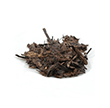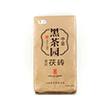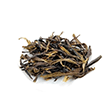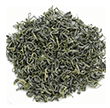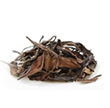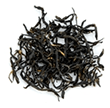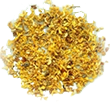Chinese Teapots - Choosing Size And Shape
The first thing to consider when looking for a teapot is to select the right size of teapot to suit the number of people you will be making tea for most of the time. Teapots come in a variety of sizes but can be grouped in the following categories. Here is a handy way to refer to them:
Chart: Teapot Sizes based On Number of People Served
| Size of Teapot | Volume (ml / fl oz) (approximate) |
Number of People Served |
|
#1 size
|
70 / 2.4
|
1 - 2
|
|
#2 size
|
100 / 3.4
|
2 - 4
|
|
#3 size
|
175 / 6.0
|
3 - 5
|
|
# 4 size
|
225 / 7.6
|
4 - 6
|
The size numbers above correspond quite well to the number of people being served. If you usually drink tea alone or with one other person, the #2 size for 2 persons would be a good start. If a few more people come over for tea, you can simply make more brews. If you have a favourite tea that you serve often to many guests, consider getting a larger teapot for that tea.
Shape
The different shapes of teapots allow the different types of leaves to expand in their own unique way to maximize the surface area exposed to water while brewing inside the teapot. There are basically two profiles of teapots; low profile and high profile.
Chart - Selecting A Chinese Teapot By Profile And Method Of Firing
| HIGH PROFILE | High Fired Clay | Low Fired Clay |
 |
Most Green/White Teas any tea made from "tips" Taiwan Oolong |
Pu-erh |
| LOW PROFILE | ||
 |
Tie Guan Yin (also called Chinese Oolong, Iron Buddha, Buddha of Mercy Da Hong Pao Phoenix Tea |
Lapsang Souchong and other Chinese Black Teas (known as Red teas in China) |
Chart: Teapot Shapes For Type of Tea
Collecting interesting looking teapots can be an enjoyable and rewarding hobby but one should not confuse a good tea-making teapot with a decorative one. Notice that all the shapes above except for the decorative one follow very simple designs. The reason for the lack of ornamentation is because tea is very sensitive to heat fluctuations and the best teapots distribute heat evenly. Decorations create different densities in the teapot, which can create hot and cool spots. Another reason is that in Gong Fu Cha, hot water is poured over a teapot during brewing and the water will be deflected by awkward angles, creating further hot and cool spots on the outside of the teapot during brewing.
For more deatiled information, see our How-To Guide: "How To Choose A Chinese Teapot by Daniel Lui"
 Top of Page
Top of Page

Ask The Tea Wizard
Don't know which tea is right for you? Answer a few questions and the Online Wizard will show you all the Chinese teas that suit your taste.


